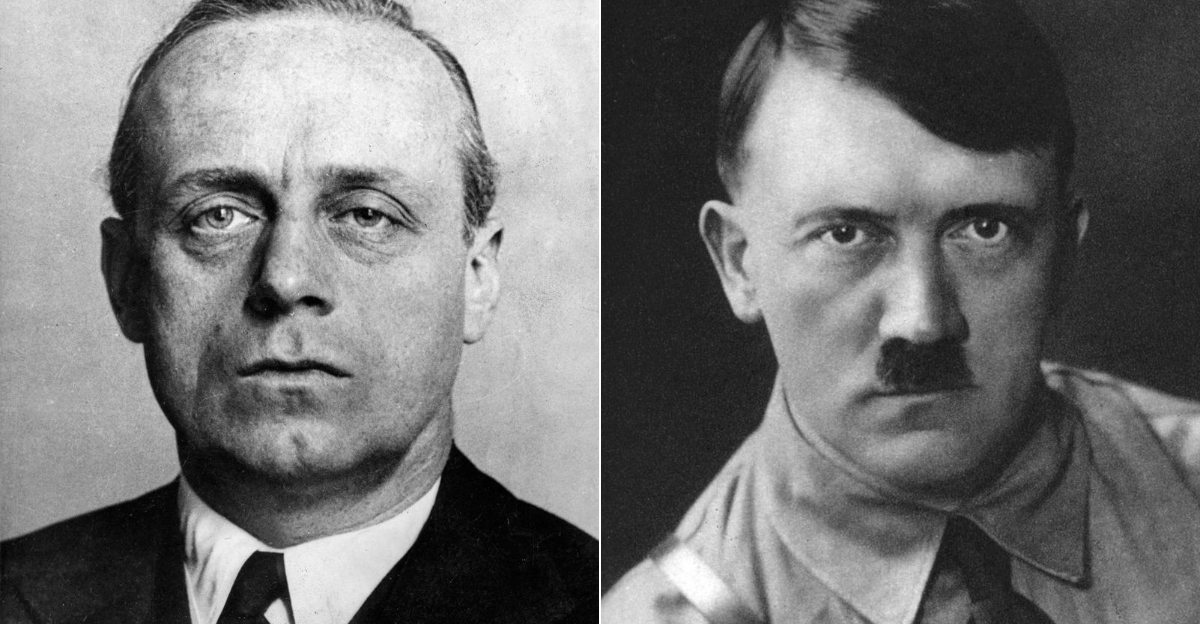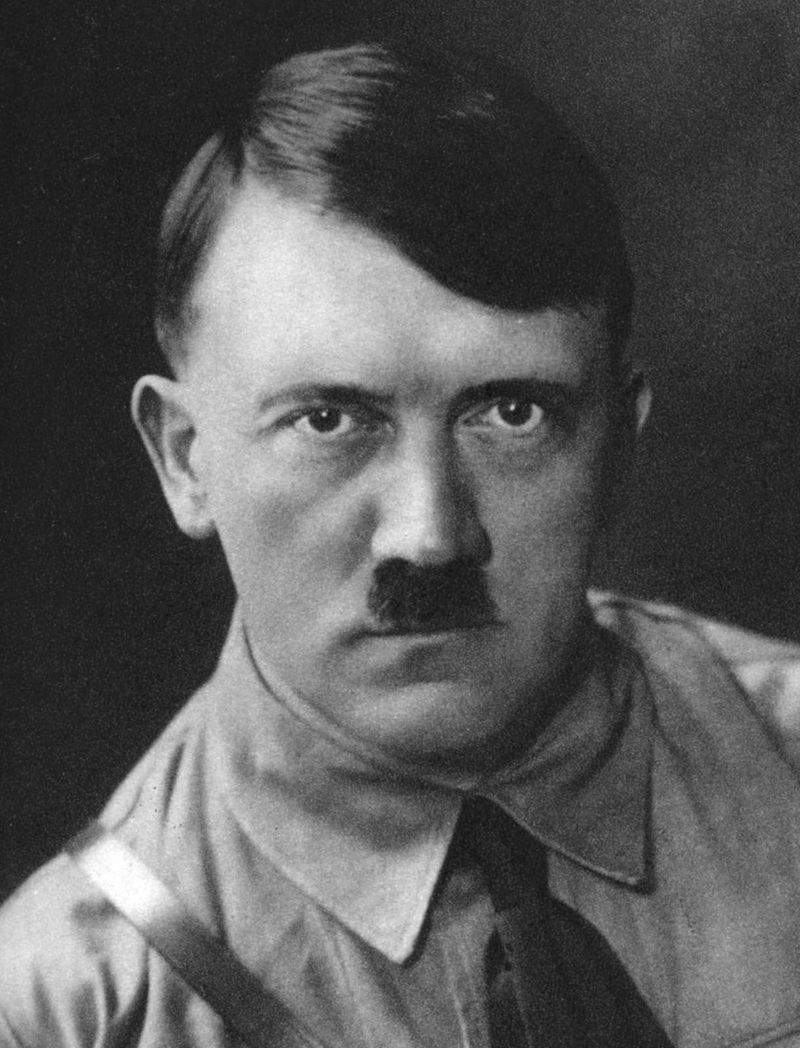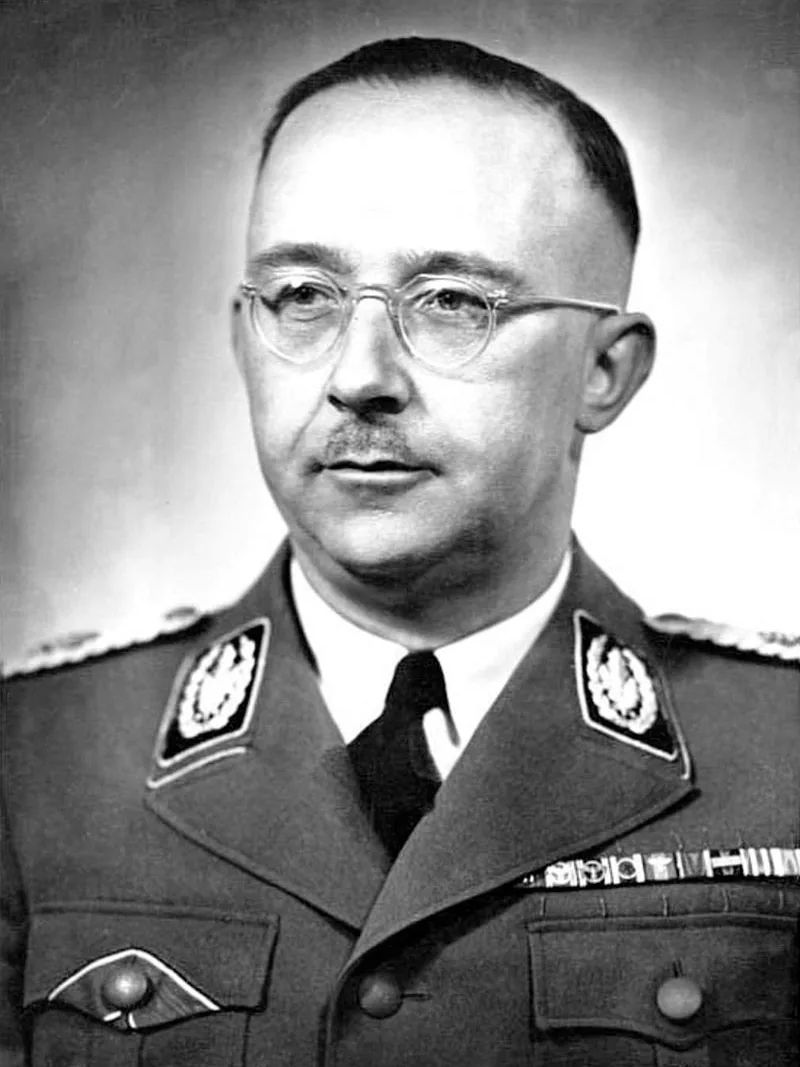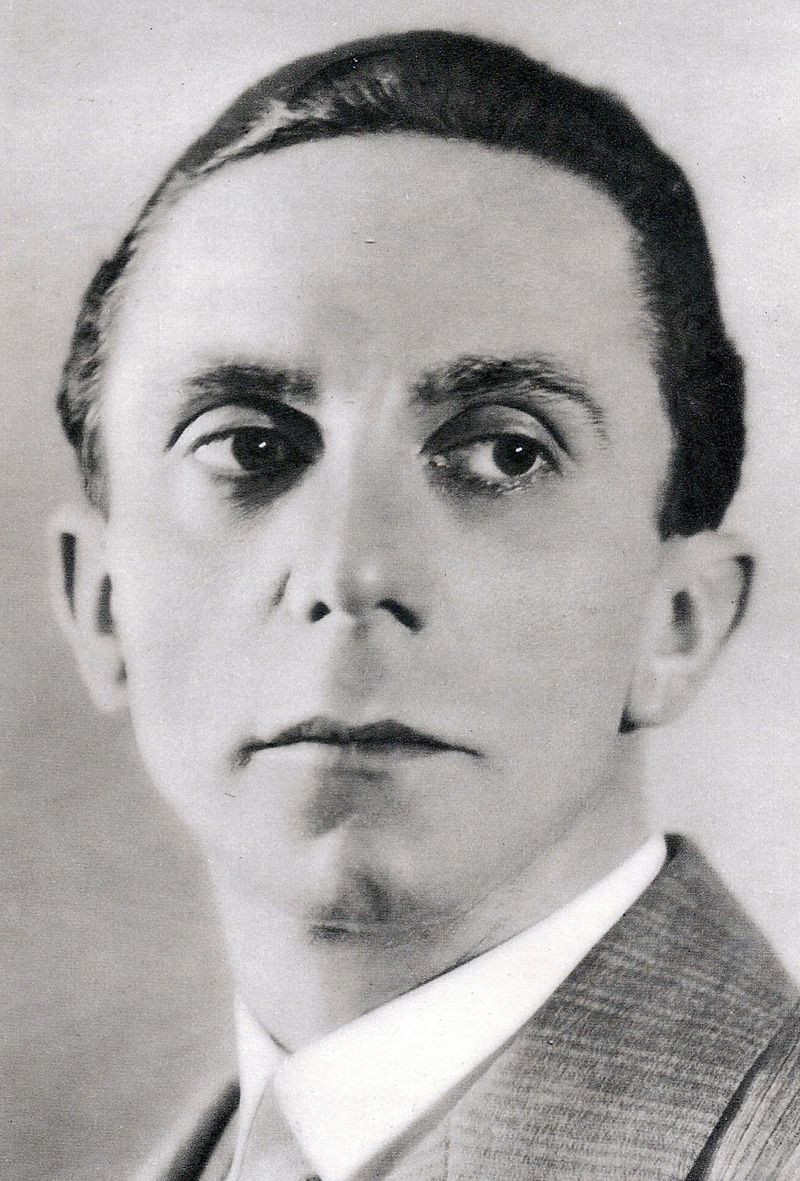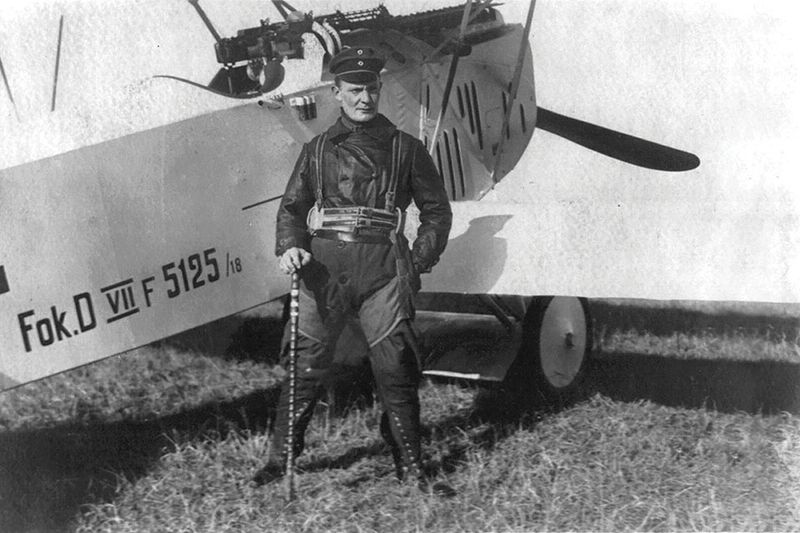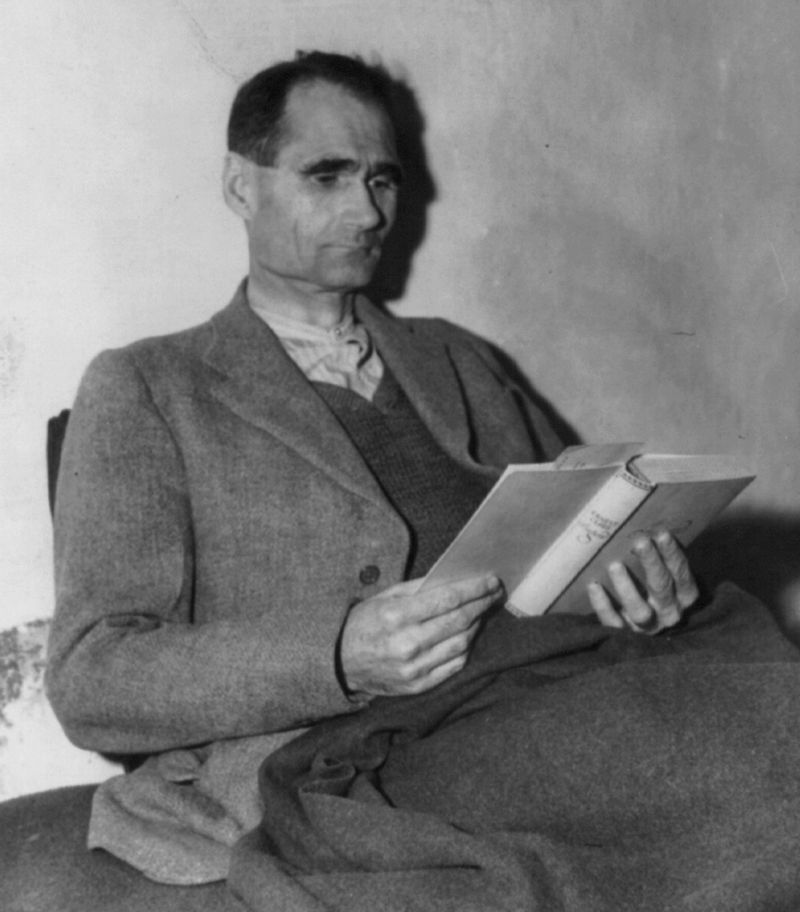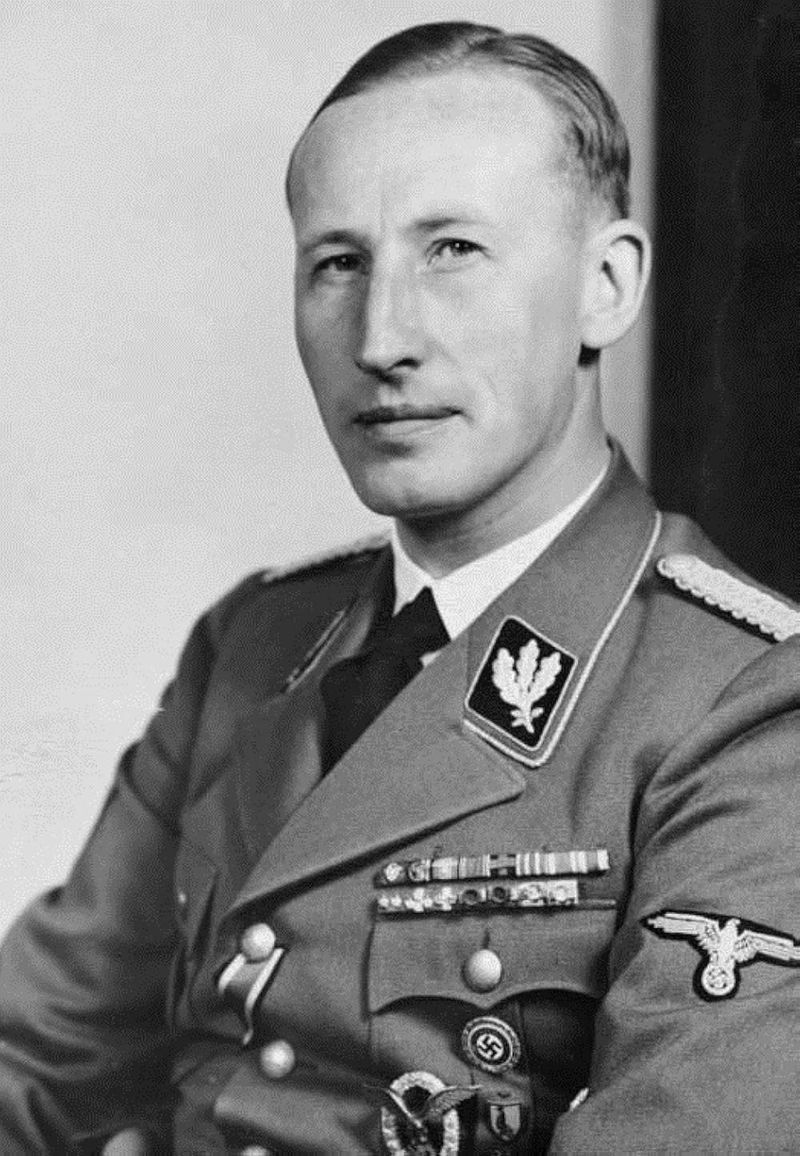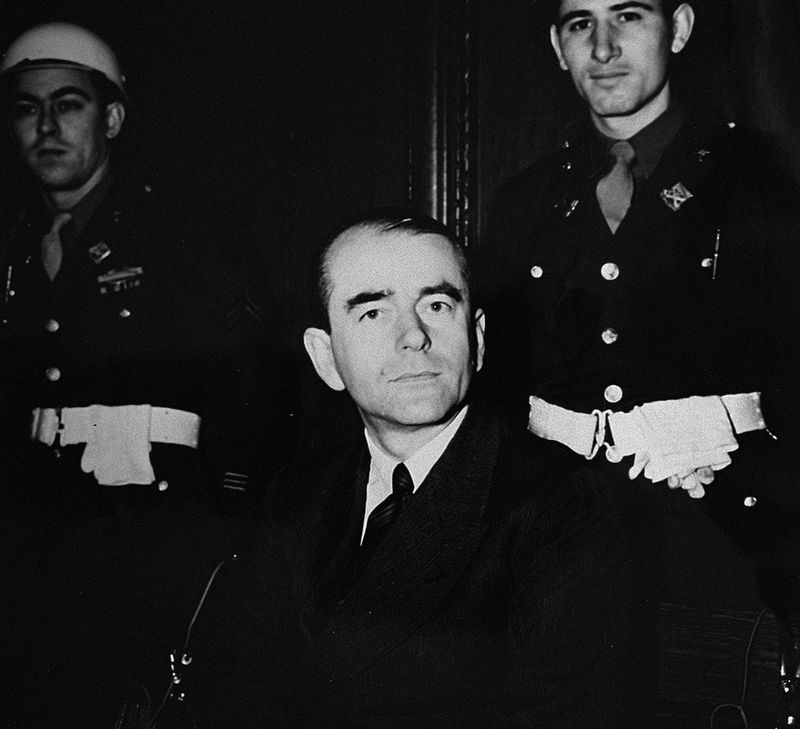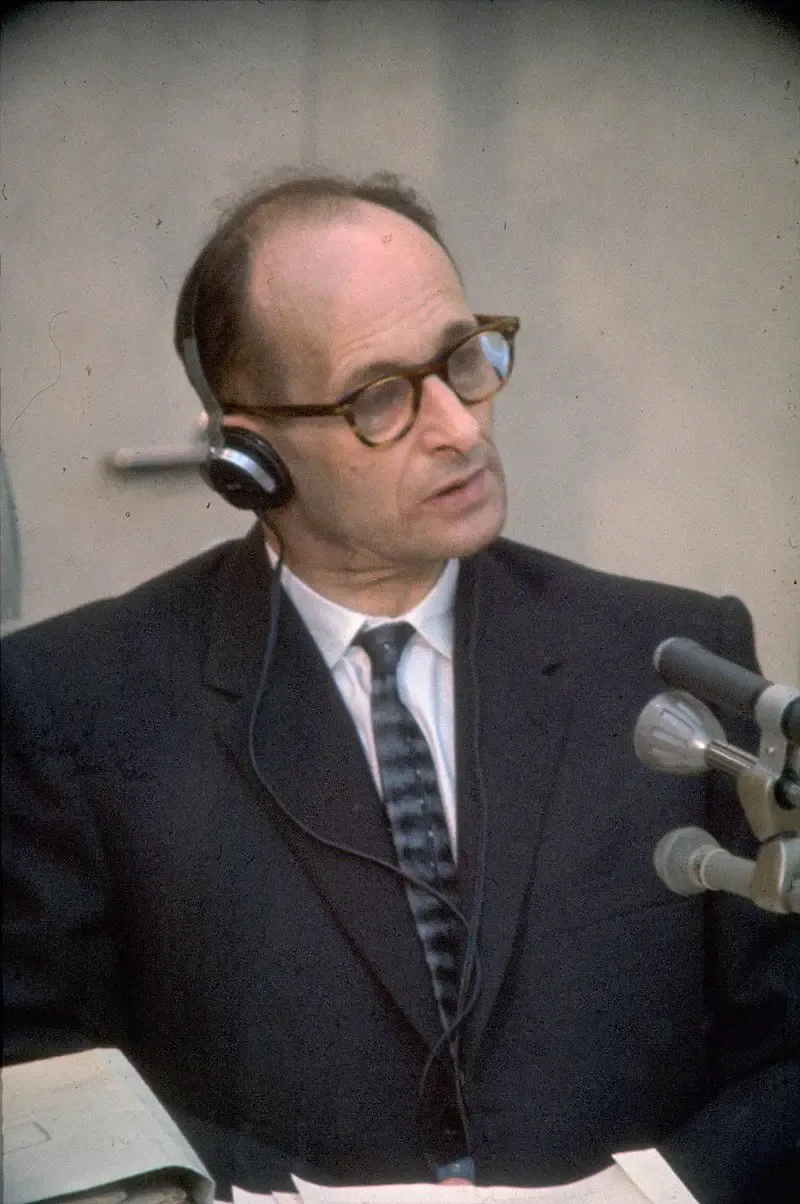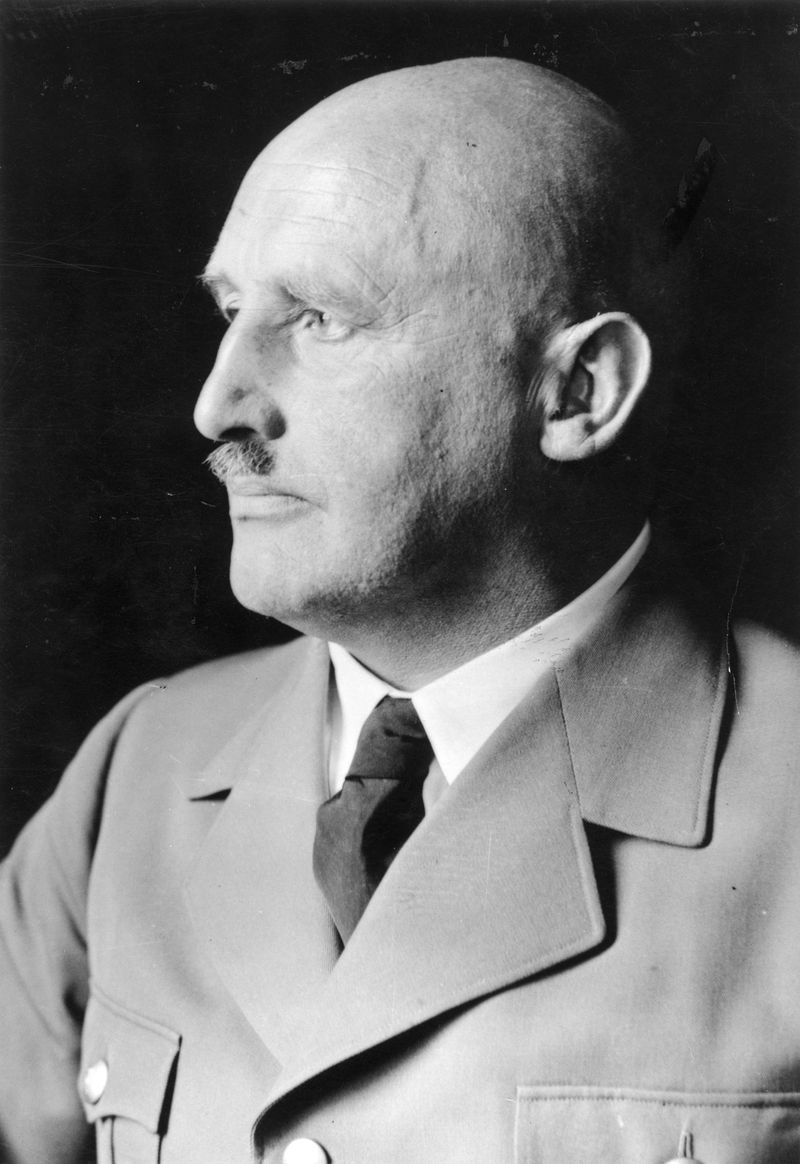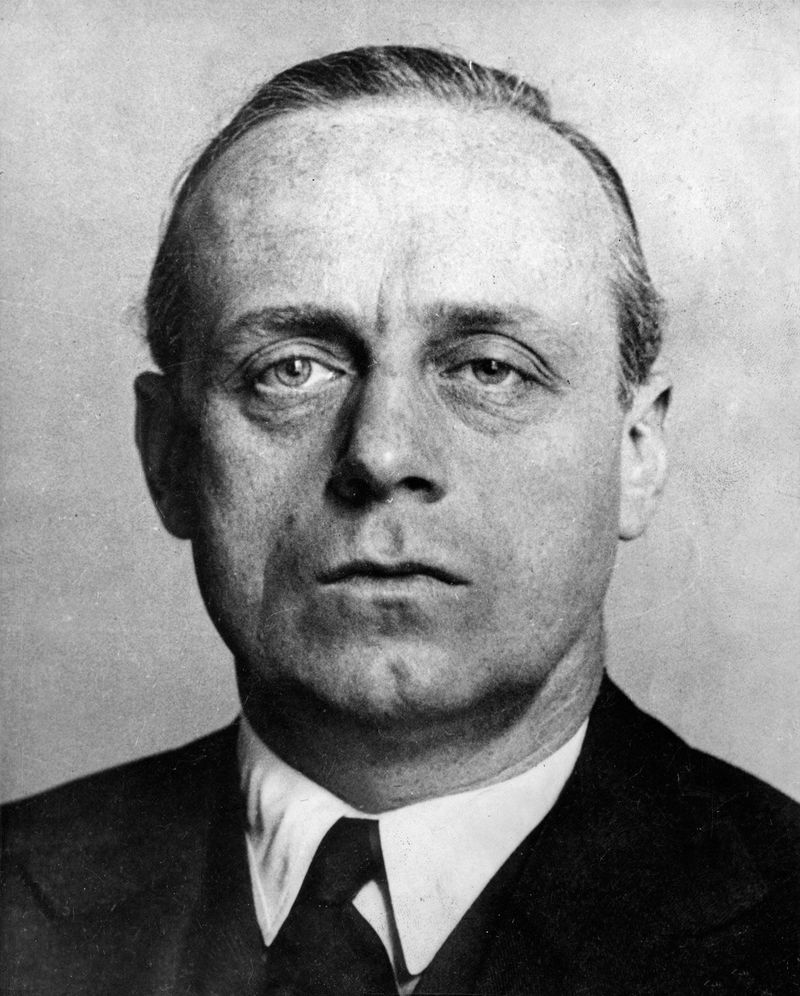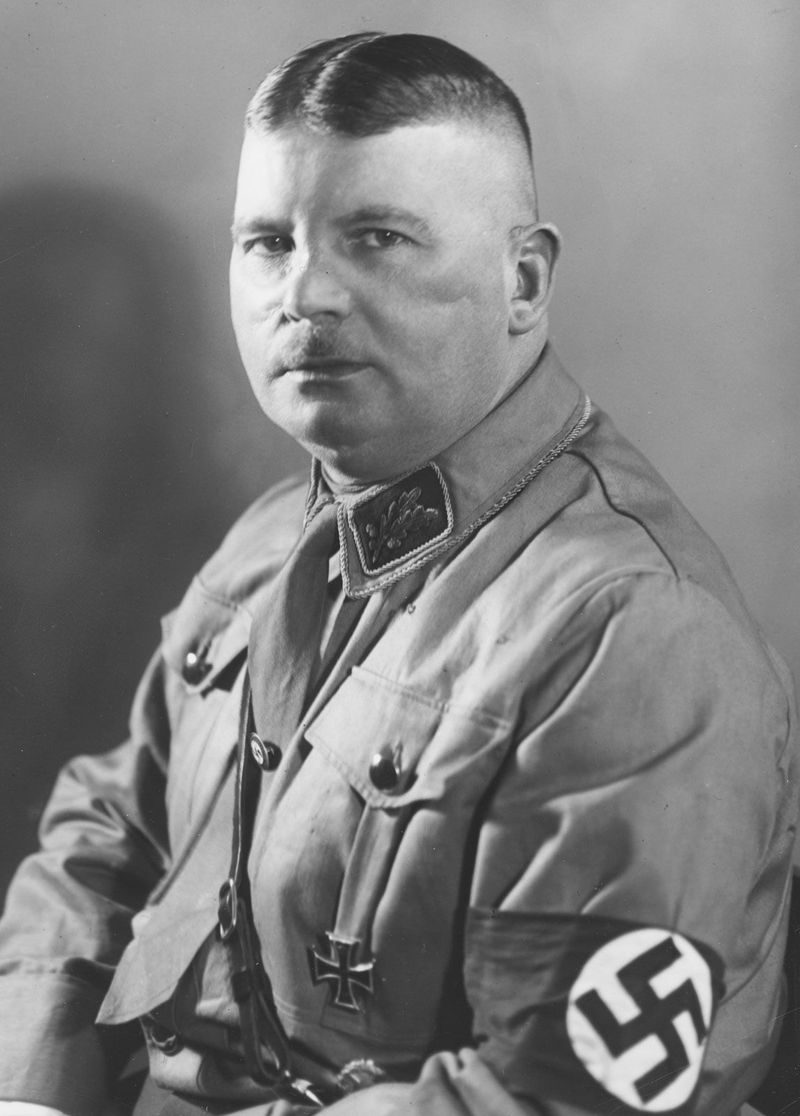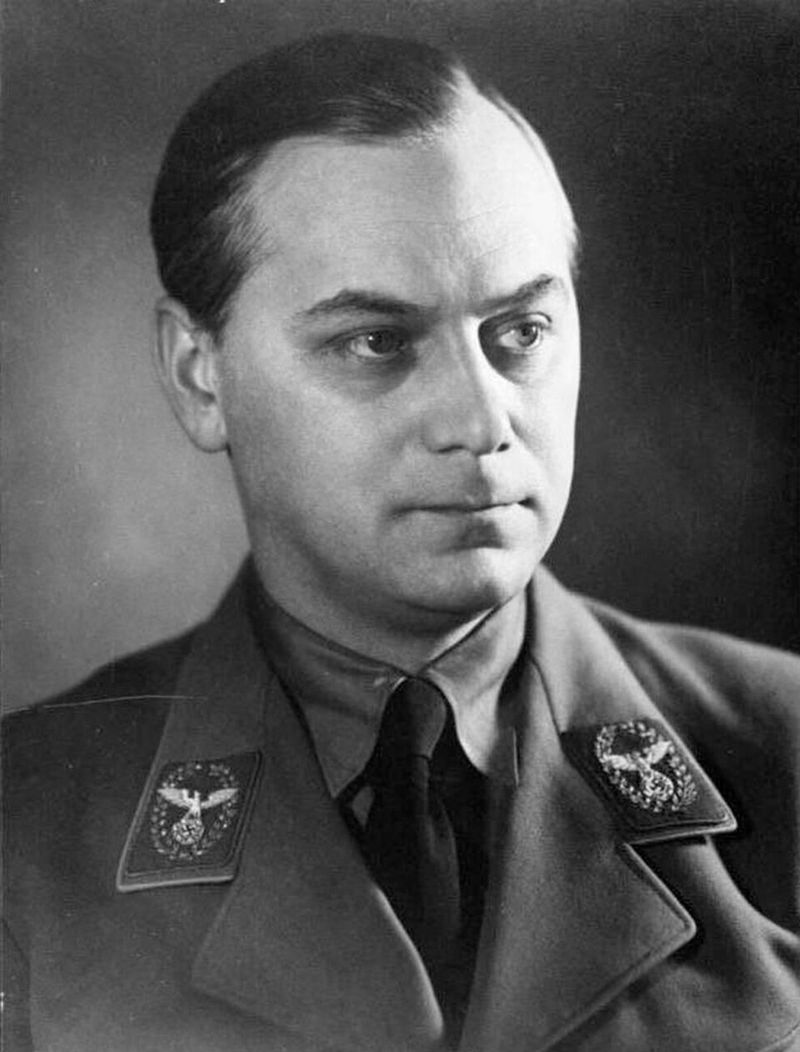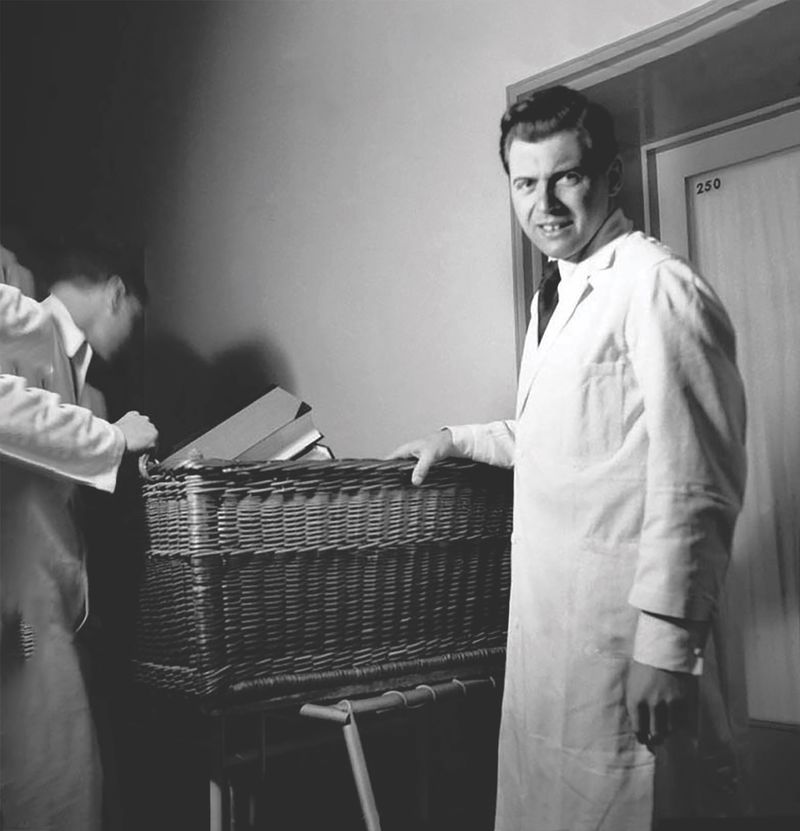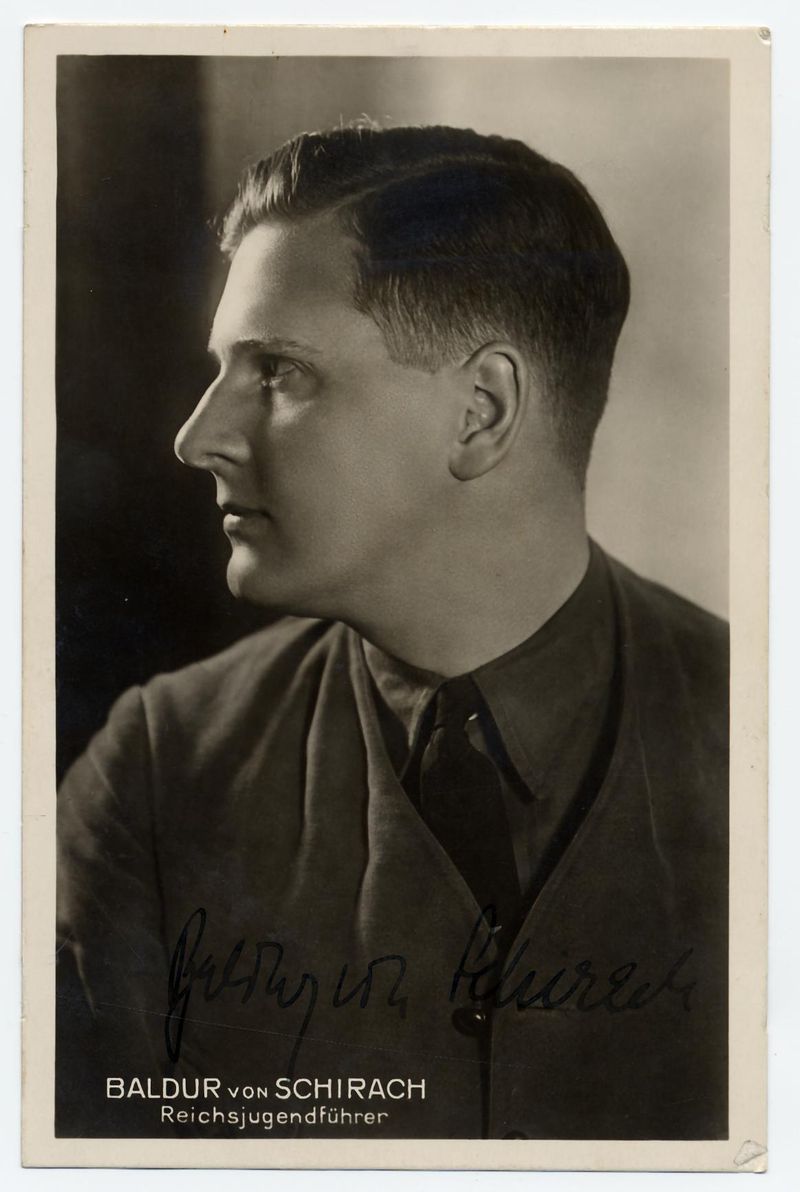Before their rise to infamy, many Nazi leaders held ordinary jobs that seemingly bore no hint of their future malevolence. These roles, ranging from artists to farmers, illustrate the unsettling truth that evil can emerge from any walk of life.
1. Adolf Hitler – Failed Artist & Postcard Painter
Adolf Hitler, before becoming the dictator of Nazi Germany, was a struggling artist in Vienna. Rejected from art school twice, he found himself painting postcards to scrape by. This rejection festered, creating deep-seated resentments that would later influence his destructive path.
His dream was to be celebrated for his art, but fate had a different plan. His time in Vienna, marked by isolation and frustration, planted the seeds of hatred that would grow into the Nazi ideology. Interestingly, his artistic dreams were overshadowed by his political ambitions.
2. Heinrich Himmler – Chicken Farmer
Heinrich Himmler, infamous for orchestrating the Holocaust, once devoted his life to agriculture. As a young man, he pursued studies in agronomy and managed a chicken farm. His fascination with breeding extended beyond poultry, as he later applied these principles to his notorious racial policies.
In those early years, Himmler seemed destined for a life on the farm, far removed from the heinous acts he would later commit. The transformation from farmer to architect of genocide is a chilling reminder of the potential for darkness in ordinary beginnings.
3. Joseph Goebbels – Novelist & Journalist
Joseph Goebbels, known as the master of Nazi propaganda, initially sought recognition in the literary world. He ventured into journalism and even penned a semi-autobiographical novel, “Michael,” laced with early elements of his extremist views.
Despite his literary aspirations, Goebbels found his true calling in shaping public opinion, utilizing his writing skills to craft powerful messages for the Nazi regime. The transition from struggling writer to propaganda minister illustrates how narratives can be twisted for malevolence, highlighting the power of words in shaping history.
4. Hermann Göring – Commercial Airline Pilot
Before rising to power, Hermann Göring was a celebrated fighter pilot during World War I. Post-war, he transitioned to a commercial airline pilot, flying for a Swedish airline. His charm and charisma served him well in both aviation and Nazi politics.
Göring’s aviation career seemed promising, yet it was his political maneuvering that truly elevated his status. Using his skills to forge connections, he navigated from the skies to Hitler’s inner circle, proving that ambition can redirect a seemingly noble path toward infamy and power.
5. Rudolf Hess – Grocery Clerk
Rudolf Hess, who would become Hitler’s deputy, once led a humdrum life as a grocery clerk in Switzerland. His early days involved mundane routines, far from the political fervor that later defined him.
Hess’s transformation from a clerk to a Nazi fanatic is startling. His monotonous job starkly contrasts with his later notorious flight to Scotland, where he attempted to broker peace with the United Kingdom. This leap from ordinary to extraordinary is a testament to the unpredictable nature of human ambition.
6. Reinhard Heydrich – Naval Officer Turned Insurance Salesman
Reinhard Heydrich, known as the “Butcher of Prague,” began his career as a naval officer. Discharged due to a scandal, he briefly became an insurance salesman. This period of his life hinted at none of the brutality he later displayed.
Heydrich’s naval discipline and sales acumen would later translate into ruthless efficiency in executing Nazi plans. His journey from mundane sales to masterminding atrocities demonstrates the dichotomy in his life, where ambition and ability were redirected to horrific ends.
7. Albert Speer – Architect
Albert Speer, Hitler’s favorite architect, initially focused on designing monumental structures. His talent for grandiose designs caught Hitler’s eye, leading him to become the Minister of Armaments and War Production.
Speer’s architectural vision was overshadowed by his role in exploiting forced labor to fuel the Nazi war machine. This transition from creating buildings to crafting wartime strategy reflects the dark potential within creative genius when aligned with malevolent power.
8. Adolf Eichmann – Vacuum Oil Salesman
Adolf Eichmann, infamous for organizing the logistics of the Holocaust, once worked as a traveling salesman for Vacuum Oil Company. His role involved traversing regions and making connections, skills he would later use with chilling efficiency.
Eichmann’s business acumen and bureaucratic precision were redirected from sales to orchestrating mass deportations, highlighting how ordinary talents can be twisted for terrible ends. This transformation serves as a cautionary tale about the dangers of bureaucratic zeal without moral consideration.
9. Julius Streicher – Schoolteacher
Julius Streicher, notorious for his antisemitic publication, Der Stürmer, began his career as a schoolteacher. In the classroom, he was entrusted with shaping young minds, a responsibility he ultimately betrayed.
His transition from educator to propagandist is a stark example of how influence can be weaponized. Streicher’s teachings, once confined to a classroom, expanded to poison public perception, illustrating the profound impact of words and the dangerous potential of a persuasive voice.
10. Joachim von Ribbentrop – Champagne Salesman
Joachim von Ribbentrop, who became Germany’s foreign minister, initially worked as a successful champagne salesman. His skill in networking and persuasion served him well in both the wine trade and Nazi diplomacy.
Ribbentrop’s adeptness at charming the elite translated from the world of luxury sales to international politics. This seamless shift from commerce to diplomacy underscores how personal charisma can be a tool for significant influence, regardless of the arena.
11. Ernst Röhm – Bank Clerk & Mercenary
Ernst Röhm, a key figure in the early Nazi Party, held an unassuming role as a bank clerk before becoming a notorious paramilitary leader. His time in the bank was a far cry from his later life of violence and intrigue.
Röhm’s journey from finance to forming the SA (Brownshirts) highlights the unpredictable paths of ambition. His ability to organize and lead men was initially stifled in the banking world but found dangerous expression in the political arena.
12. Alfred Rosenberg – Architecture Student & Journalist
Alfred Rosenberg, the Nazi Party’s chief ideologue, studied architecture and wrote extensively for far-right publications. His early focus on structural design mirrored his later ideological structuring of Nazi racial policies.
Rosenberg’s writings laid the groundwork for the ideological justification of Nazi atrocities. His path from student to architect of a poisonous doctrine illustrates the power of ideology and the role of intellectuals in shaping destructive narratives.
13. Josef Mengele – Medical Researcher
Josef Mengele, the “Angel of Death” at Auschwitz, began as a promising medical researcher. His interest in genetics and anthropology led him to earn a Ph.D., setting the stage for his horrific experiments.
Mengele’s transformation from scientist to sadistic experimenter is a chilling reminder of how scientific inquiry can be perverted. His work, once promising to advance human understanding, became synonymous with inhumanity, demonstrating the ethical responsibilities that accompany scientific power.
14. Baldur von Schirach – Poetry Enthusiast & Youth Organizer
Baldur von Schirach, leader of the Hitler Youth, was initially captivated by romantic poetry. His love for literature and charm translated into a talent for organizing and influencing young minds.
Von Schirach’s shift from poetry enthusiast to indoctrinator of youth reflects the duality of inspiration and manipulation. His ability to captivate audiences served a darker purpose, illustrating how charisma and communication skills can shape future generations, for better or worse.
